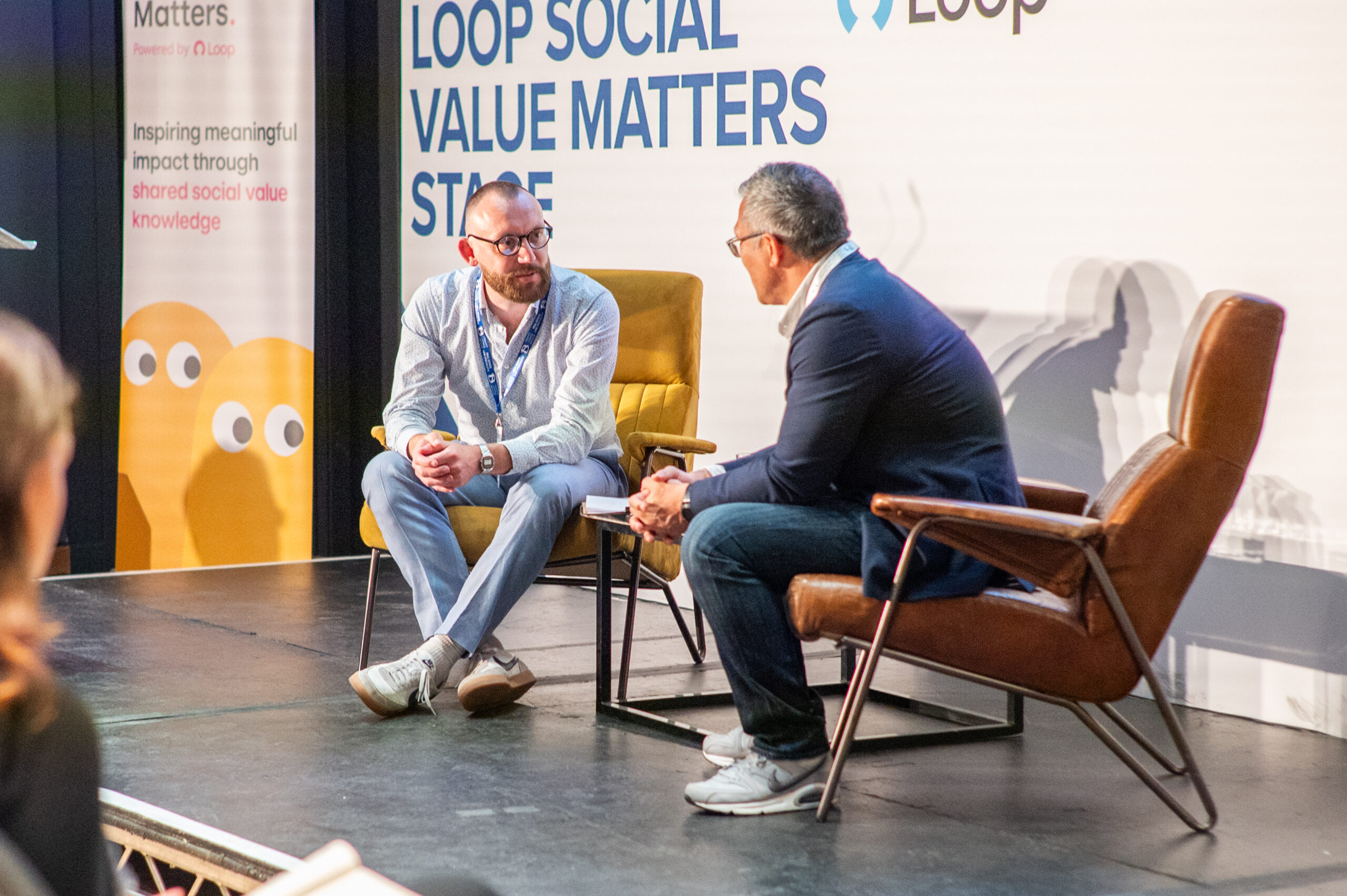Pushing In The Same Direction: Why Social Value Collaboration Must Scrum Together

One of the highlights from Loop’s Social Value Matters Stage at this year’s UKREiiF was The Social Value Scrum, a dynamic and thought-provoking session led by former England rugby international Tony Underwood.
Just like a rugby scrum, achieving meaningful community impact depends on everyone pushing together – public bodies, local authorities, private sector suppliers, charities, and the communities themselves. Now the co-founder of Believe Solutions – a values-led consultancy focused on creating high-performance social value strategies for organisations and communities – Tony brought to UKREiiF a clear central message: “Collaboration is no longer optional – it’s essential.”
Lessons from sport to social value
Tony shared a powerful journey from his days on the rugby field to his career as a commercial airline pilot, and now as a social value advocate through Believe Solutions. Drawing parallels between elite sport and community development, he emphasised that true performance doesn’t begin with tactics or metrics – it begins with trust, shared purpose, and care for one another.
This ethos is at the heart of what Tony describes as “high performance social value” – a commitment to move beyond transactional, tick-box approaches and towards collective, measurable, and meaningful change.
Tony said: “Most people go straight for driving performance; but without providing the foundations of trust through empathy and unity, performance won’t sustain. The Social Value Act 2012 is more than a decade old, and I do believe that, while it is in the psyche of most people in the industry who want to do the right thing, there is a collective appetite to take things to the next level and for us to work harder together for one another’s benefit.”

The Social Value Scrum: Breaking down silos
During the session, Tony introduced his concept of the Social Value Scrum – a metaphorical and practical framework inspired by his experiences in elite rugby, to reimagine how collaboration should function in tackling community challenges.
Tony said: “Matching services between the community and private sectors results in silos. While each relationship may be great in its individual intent and can bring their own successes, a scrum, in contrast, symbolises what can be achieved when we come together, align our strategies and push in the same direction.
“There’s so much energy in the system already, but it’s dispersed. The ‘scrum’ format gets everyone behind a shared vision.”
This concept was brought to life through a powerful live demonstration with attendees. Tony and Loop illustrated how a squad, or scrum, can be formed from within the community sector, alongside public service partners, creating a place-based localised solution that responds directly to the needs of that community. This scrum can be presented to local authorities and prescribed and supported through procurement.
But it doesn’t stop there. Businesses in the private sector can also scrum together, aligning across their full supply chains to lend their weight behind the local solution. In this model the scrum is the solution, and the private sector isn’t asked to solve the problem alone, but rather invited to get behind a well-defined, community led solution. Allowing their resources and ESG ambitions to be channelled in a more targeted, collaborative and impactful way.
It’s a practical blueprint for moving from siloed good intentions to high performance social value. Community defined needs are supported by joined up services, with the private sector mobilised to help. Everyone pushing in the same direction.
From concept to change
With legislation including The Construction Playbook and The Procurement Act 2023 increasingly demanding transparency and outcomes from public spending, Tony’s approach aims to help public bodies and supply chains work more strategically – and with a more human-centric focus.
The session tackled the pressing challenge: how can small organisations, charities, and local community groups participate meaningfully in the social value agenda when resources and access are limited?
Tony’s answer: “We need to create an ecosystem where everyone belongs and contributes. That means rethinking how we procure, manage contracts, and measure impact.”
From regeneration projects in the North East to youth engagement in South West London, questions from the floor reflected the breadth of challenges and opportunities facing the social value landscape. Tony’s message remained consistent: “There is an appetite for change, and we’re on the brink of a cultural shift.
“To make it work, we must be bold, challenge each other fiercely, and focus not just on activity but on genuine impact. Opportunity is the keyword. Let’s scrum together – not to compete, but to collaborate for a stronger, more inclusive future.”
Book a free demo



